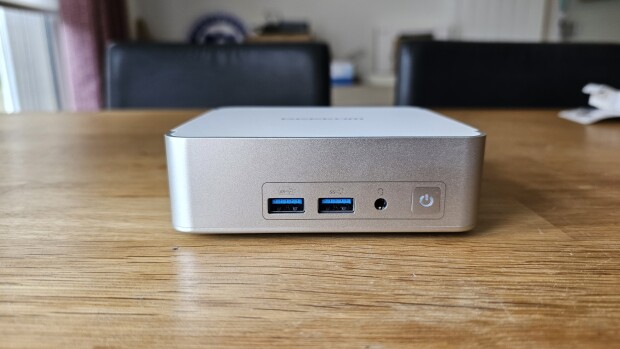_story.jpg)
Last week, Apple gave the public its first look at macOS 10.14 Mojave, its newest desktop operating system. Mojave is many things, but more importantly, its an indication of how Apple sees the future of apps on the desktop — as well as desktop usage in general really — as deeply intertwined with mobile.
For background, Apple has enabled a feature for developers which allows them to (in simple terms) create iOS apps that run on macOS devices. Cupertino has already demonstrated that this technology works and isn't simply vapourware, opting to launch Apple News, Stocks, and Home on Mojave using the same technology that they plan to open up to developers in 2019.
Mobile apps, once often seen as inferior to desktop apps or poor copies of them, are now being positioned to replace them as the primary means with which users interact with software and services on PCs.
Apple isn't the only one to have made this realisation in recent years, Microsoft made some moves towards this with Windows 8 and later universal Windows apps on Windows 10. Google for its part brought the entire Google Play Store to Chrome OS and now advocates that developers build their mobile apps with the big screen as a consideration.
With the launch of the iPhone in 2008, mobile applications or apps, as they are more popularly known, grew in potential (and popularity), yet they remained below desktop apps when one considered functionality and features. As mobile platforms have grown and developed year after year with Android becoming the most popular operating system worldwide and most users carrying out their computing primarily on the platform, development priorities have also shifted.
No longer do developers (in Europe and North America) build their best apps for desktop platforms like Windows and macOS, they instead develop for iOS, Android, and the web — in that order — with native desktop apps being a maybe more often than not.
With this new reality in mind, operating system makers have tried to make it easy for developers to bring their mobile apps to the desktop in one form or another. Microsoft notoriously failed with Windows 8 and 8.1. Google struggled with bringing Android apps to Chrome OS with various buggy methods until it decided on its current path of simply building Google Play support into Chrome OS. Many OEMs have tried to build PCs or laptops running Android but it’s just never really managed to take off until the past two years or so.

While mobile apps were once seen as useless on a desktop, toy-apps that are best relegated to the phone, there is a different perspective to be seen here.
Last month, Google launched its YouTube Premium service. With YouTube Premium, the firm offers offline download of videos, original content, a YouTube Music app and Google Play Music thrown in for free. For users who had been waiting for YouTube Music, there was some disappointment when the firm didn’t launch a desktop app. If I had just a Windows PC, I would have shared that. Fortunately, I have a Chromebook, and I can download and use the new YouTube Music app. It’s not just that, a variety of apps exist that are either mobile or web-only like Amazon Prime Video, Google Photos, or Pocket among others. With a desktop operating system which runs mobile apps, I can use these apps much like I can use desktop apps for an overall richer experience.
While Apple is late to pick up this idea, the firm has had more success convincing developers to adapt to its every whim over the years, have no doubt that Cupertino will see greater success with this concept than Google barring any unforeseen occurrences.
This is not to say that desktop apps themselves are obsolete, or that they don't have their place. Indeed a desktop app like Google Docs, or Microsoft Office is superior to its mobile equivalent. To use a practical example, I tried to use the Microsoft Office Word Mobile app to format a book. As it turns out, many of the features I needed like mirror margins or an NCX table of contents were either absent or dumbed down. Now, I don't see why Microsoft or Google can't add those features or increase the complexity where it makes sense to, but that's beside the point. Desktop apps are a jack of all trades, most people aren't. Many people could live long happy lives without needing to worry about mirror margins or even to know what they are, and that's where mobile apps have their edge. As long as an app is good enough, then users will, on the whole, not care about a missing feature or two.
_story.jpg)
The move of mobile apps to the desktop will provide benefits to users, if successful. We’ll be seeing more mobile apps that take advantage of larger screens and the tablet form factor on the one hand. On the other, desktop users will gain access to a large number of apps that they would never ordinarily have access due to a dearth of modern desktop development.
A shift to mobile apps would also represent new opportunities for developers, many of whom have abandoned building traditional desktop apps for mobile. Many desktop apps are now built either as a web app first or as web-based apps. Google Docs is a prime example of a desktop app that lives wholly on the web. Slack and Trello, popular collaboration tools which have desktop apps, are built almost entirely on web technology with their ‘native’ apps being built on Electron.
It would be ironic. For years, we've tried to bring the desktop to mobile. Who knew the path we would arrive at involved taking the opposite route. I, for one, welcome our new mobile overlords.



















34 Comments - Add comment